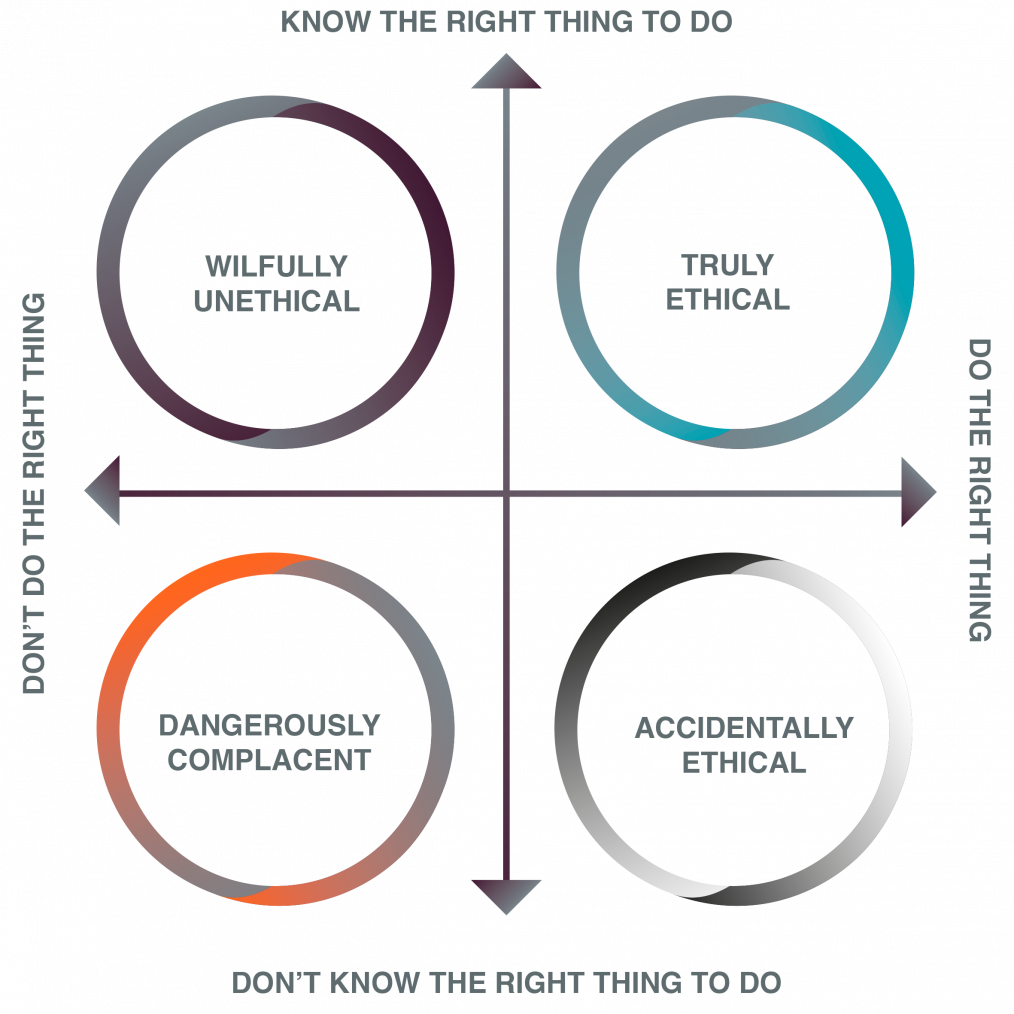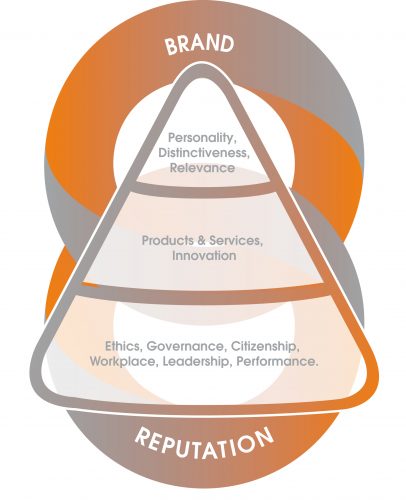
Where is your company on the Ethics Matrix?
In the news recently we learned that some companies have responded to the less adverse than expected impact of COVID 19 on their business by paying back their furlough grants to the government – an unquestionably ethical decision. This set us wondering here at Tovera about how much in recent months companies have found their thoughts turning to ethics.
In all our projects we ask our respondents (typically key influencer stakeholders) something about the ethics they believe the subject organisation displays. In order to contextualise this we also ask what they consider ethical behaviour to be in the context of their sector. In the course of this line of questioning we have observed not only surprising inconsistencies – either in absolute definition or in apparent levels of consideration for the topic at all – but also some simple consistent themes that go back, if respondents did but know it, to classical definitions of ethics. It is in many ways reassuring that some of the fundamentals of behaviour are quite so enduring.
Most stakeholders define ethics in terms of doing the right thing, without necessarily being clear about what that right thing actually is, or even should be. Some can describe apparently ethical behaviour but not be certain if that behaviour is consciously ethical on the part of the company.
So we can envisage a matrix of behaviours as below. I wonder which quadrant your company, brand, organisation falls into?
Are you:
- Truly ethical? Does your business know the right thing and always do it?
- Accidentally ethical? Does your business lack clarity in its ethical codes (does it even have a code?) and yet somehow manage to do the right thing? If so, should that required behaviour be codified to avoid future disasters?
- Dangerously complacent? Is your business unaware of the right thing to do and actively not doing the right thing? If so which comes first – the lack of awareness driving the behaviour or the behaviour causing some blind-eye-turning? Either way, should the business not take a closer look at itself?
- Wilfully unethical? Does your business know the right thing, maybe have a code buried somewhere on the corporate website but actively do the opposite? If so, do you know how and why? And are you helpless in the face of it and/or just keeping your fingers crossed?
In our client work here at Tovera, an understanding of where a company sits – of believes it sits – on the ethics matrix is a key consideration in understanding the desired brand positioning versus the actual – and how to bridge the two.
We’d like to open up a discussion on this. Let us know (anonymously, or confidentially directly, if you prefer) where you think your company, brand or organisation fits on this matrix; can you place other brands within it? Do you have experience that blurs the edges? Let us know, we’d love to hear from you.
Ann Binnie.

